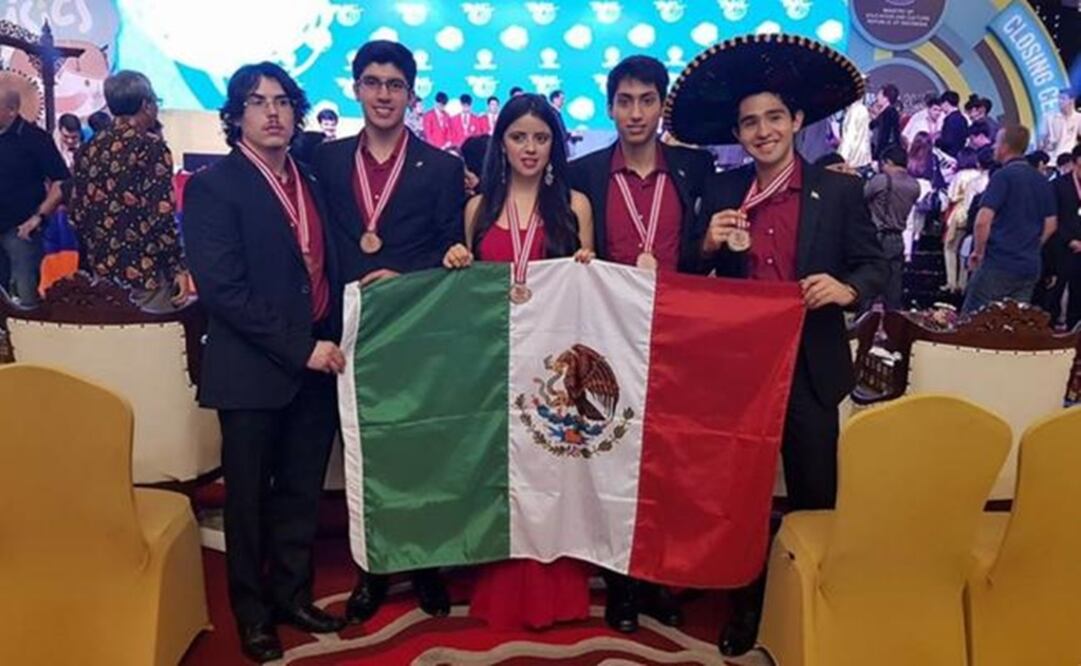Más Información

Dan 8 años a "El Bad Boy", pionero en drones con explosivos para Cártel de Santa Rosa de Lima; trabajó para "El Marro" y el CJNG

Sheinbaum se une al reto "six-seven" en León; convive con estudiantes entre corazones y canciones de TikTok
The Mexican delegation that participated in the 48th International Physics Olympiad (IPhO) – held in Yogyakarta, Indonesia – will return to Mexico with five bronze medals .
Unlike last year – when Mexico obtained four honorary mentions – in this year's IPhO, the Mexican team managed to earn the necessary individual scores to win medals.
The laureates were Grecia Castelazo Martínez (Jalisco), Olivier Vicente García Esparza (Jalisco), Oscar Guardado Chacón (Nuevo Leon), Erasmo Hinojosa Sáenz (Nuevo Leon) and Mauricio Rosas Gomes (Mexico City), all of them high school students.
The IPhO, which took place from July 16 to July 24, is an annual contest in which high school students from more than 90 countries perform several tests in two days. The competition is divided as follows: one day is for theoretical problems (three five-hour problems which imply, at least, four areas of Physics); and the second day, for experimental problems (one or two problems to be solved in five hours).
The tagline of the 48th Olympiad was “I'm Physics”, which has a “deeper meaning than just learning physics to compete, it is a self-declaration of those who love Physics earnestly and use it to give so many advantages to human race”, as stated in the presentation of the IPhO in Yogyakarta, Indonesian city famous for being a higher education center in this country.
The achievement of these five medals is the result of the teamwork led by researcher at the Institute of Physics of the National Autonomous University of Mexico (IF-UNAM), Victor Manuel Romero Rochín, coordinator of the Physics Society Olympics and member of the Mexican Academy of Sciences, who year after year brings to Mexico medals and honorific mentions, product of the effort of the students who participate in the international and Ibero-American physics olympiads.
Together with Romero Rochín, Didier Gamboa and Rodrigo Pelayo Ramos also participated as mentors to the Mexican team.
Even if the IPhO is a scientific competition, the main motivation is to improve international cooperation between participating countries. For some of them, the results have been regarded as a high national achievement, but most of the countries consider these results as a sort of gauge which measures their current academic level in Physics, which points out whether improvements are needed.
***With information provided by IF-UNAM and IPhO.
am
Noticias según tus intereses
[Publicidad]
[Publicidad]











